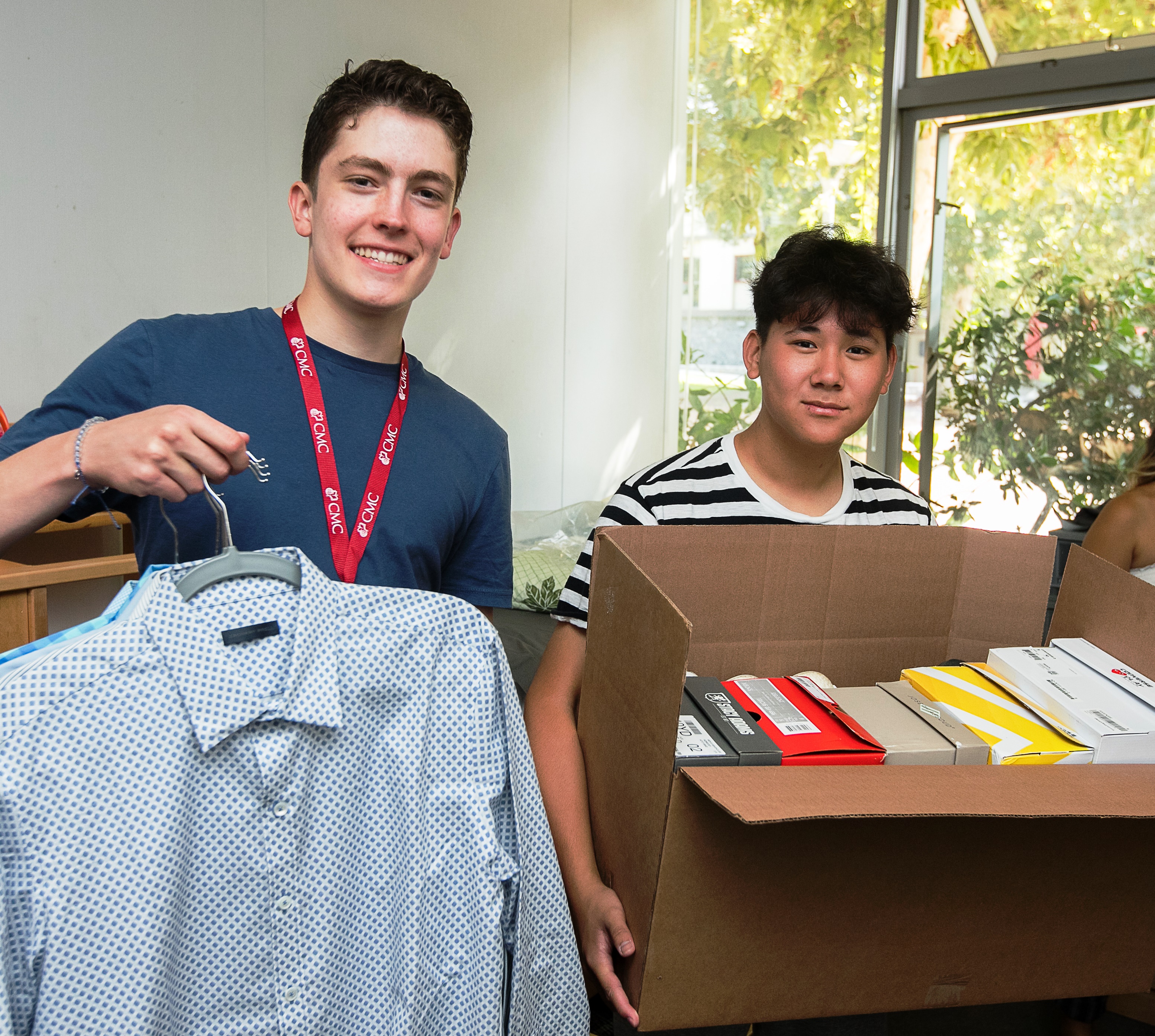Navigating the Roommate Experience - Tips for Parents
By Michelle Cash P’20
Incoming students at CMC are adjusting to all kinds of new things – life away from parents, different academic expectations, living in Southern California, and having roommates. I spoke with Assistant Dean of Students & Director of Residential Life, Jennifer Guyett and Associate Director of Residential Life, Sean Rollolazo, who shared valuable info about roommate pairings and ways in which parents can support their students’ efforts in establishing and maintaining a positive roommate experience.
As a rule, first-year students generally are not placed in singles. The roommate relationship is one way to provide a sense of belonging, to foster a more vibrant community experience, and to provide another mechanism through which students feel connected to the college and campus.

My initial question was how roommates are matched at CMC. Incoming students complete a questionnaire and provide information on all kinds of issues, including how they like to keep their room (neat/messy), their typical work/sleep schedules, study habits, types of music they like, extracurricular activities, sports participation, and other areas of life. The final, open-ended question allows a student to share any information that they believe would be useful in the process. Every questionnaire is read and reviewed by the Residential Life staff, and the process of matching roommates begins. The goal is to find roommates that will be complimentary, not identical, so that student can learn from their roommates and expand their horizons. The hope is that roommates will become friends and stay in touch throughout their CMC experience and beyond.
New this year are Roommate Agreements for first-year students. These agreements are designed to cover a variety of topics, such as sharing belongings, schedules and how to manage them, socializing approach (is their room going to be a gathering place), outside food and drinks (shared or not?), and other topics that might create tension if not addressed up front. Roommates are encouraged to post the agreement in their room and treat it as a living document by updating it with new issues as they arise. This proactive process is designed to anticipate issues and to create a means to discuss problems that may come up. Resident Assistants (RAs) refer to the Roommate Agreement if students come to them with problems.
What should a parent do if a CMC student complains about his or her roommate? Jenny and Sean suggest that parents should listen to the complaints and validate their students’ concerns, even if the parent might not find the complaints to be very significant. After listening, the parent should resist the temptation to immediately jump in with advice, because it is possible that the student is merely calling to vent and is not looking for solutions. A helpful approach might be to ask if they are asking for advice or just wanting to vent. Often, simply being able to vocalize the concern allows the student to put the issue in perspective and figure out an approach to the situation. If the student is looking for advice, Jenny and Sean suggest that parents ask their student how they plan to go about resolving the problem, offering the student the opportunity to take ownership of the the situation.
There are resources for CMC students should they need to go beyond the Roommate Agreement and self-help. An easy first step is to speak with the Residence Assistant for their residence hall. The RAs are trained on how to handle most roommate situations and are a valuable resource for students. If the situation becomes serious and the RA is not able to provide the support necessary, which should be the exception, then the student may reach out to the Dean of Students office for further assistance. Jenny and Sean encourage parents to have their students take control of this outreach rather than making those calls on their behalf. Of course, there may be situations where that type of escalation is necessary to protect the health and wellbeing of CMC students, and in those instances, parents should feel free to make those contacts.
The good news is that difficult roommate situations are not the norm at CMC, as most of the pairings result in compatible roommates. This process is just one of the many conscious steps taken by CMC to build a cohesive community of students during and after their time at CMC.